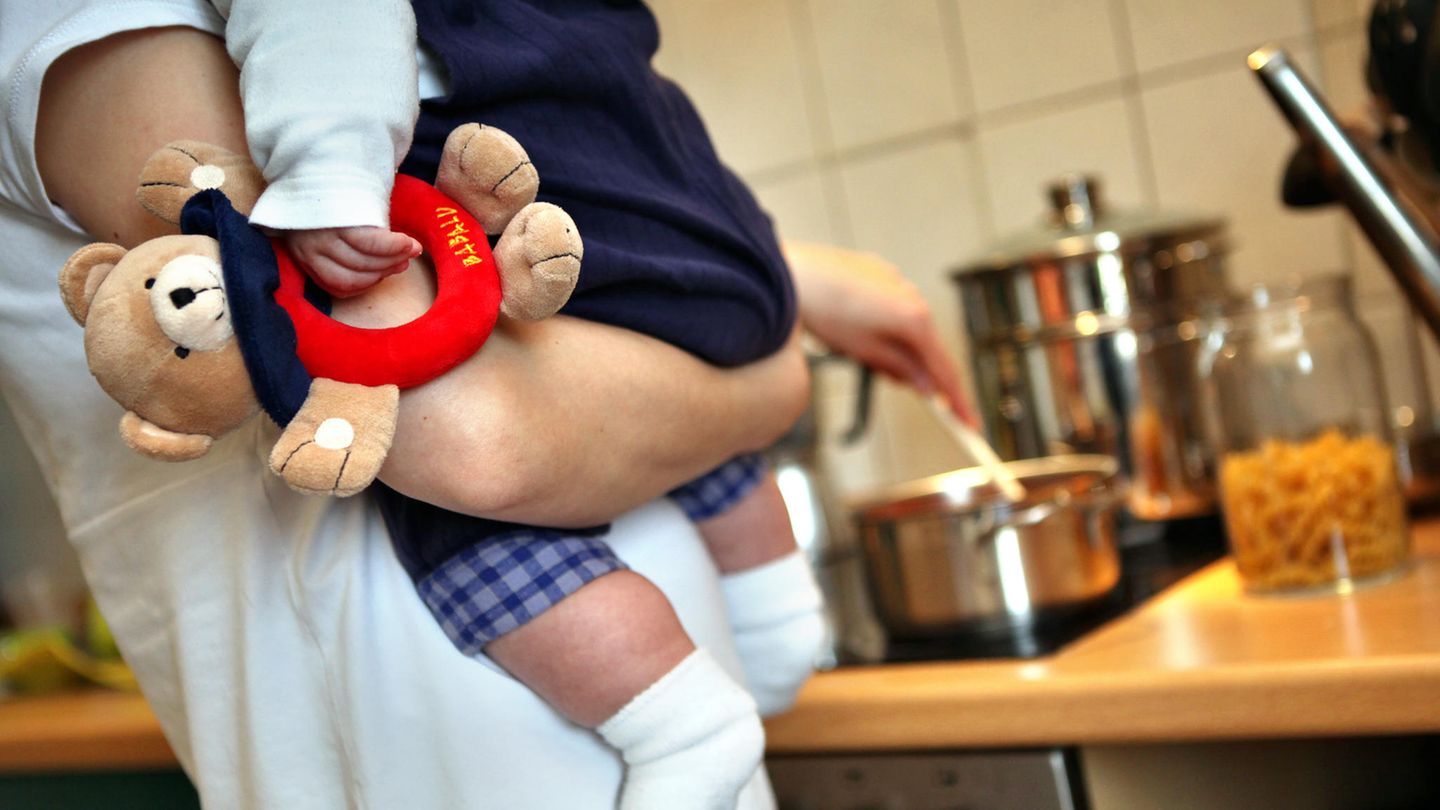From a household income of 150,000 euros, there will soon be no more parental allowance. This mainly affects rich people, says Ifo economist Andreas Peichl – but the measure is too short-term.
Mr. Peichl, parental allowance should be abolished from an income limit of 150,000 euros. The outcry in the affected circles is great. But: Isn’t that complaining at a high level – an elite discussion?
If you look at the numbers, definitely. With a cap of 150,000 euros, we are talking about a population share of two to three percent – potentially a little more if you include young academics. The losers of this reform would clearly be richer households.
So isn’t the middle class in danger, as the critics are now claiming?
For many, the terms “middle class” and “middle class” get a bit confused. The middle class is pretty clearly defined according to the criteria of the OECD. In Germany, for example, a single person with an annual net income of more than 46,000 euros belongs to the upper class. That is only about eight percent of the population. The classic middle class is between 25,000 and 40,000 euros. In Germany, however, the term “Mittelstand” is often used. These are actually the people behind the large non-listed family businesses. We’re talking about companies with millions and billions in sales. And that’s probably what Friedrich Merz meant when he described himself as “upper middle class”.
In your opinion, what would be the consequences of the reform now?
It could lead to a reversal of achievements. The introduction of parental allowance has meant that women have returned to work more quickly – mainly because they can be better supported by men. It has been shown that men who earn very well also like to take parental leave for two or three months. The reform has given employers strong legitimacy for their time off. And the other thing is that female fertility has actually increased – from 1.36 to over 1.5 children per woman. This increase even applies disproportionately to highly qualified women, who traditionally tend to have fewer children. For you, however, this has less to do with the financial incentive.
Rather?
It makes a difference when having children is supported by different policies. This also changes the legitimacy towards the employer and creates certain incentives.
The criticism also refers to the strict cap above a certain limit – in this case 150,000 euros. For example, gradations would have been possible. Do you agree with the criticism?
To put it bluntly: Radical capping like this never makes sense. Nobody can explain why you no longer get parental allowance from 150,001 euros – and it also creates incentives to set the taxable income as low as possible. So if I’m pregnant and notice in December that my household income is around 150,100 euros, then I’ll quickly buy myself a textbook – and thus fall under it again. That would be an economic loss of prosperity – to make an unnecessary purchase only to be entitled to the transfer payment again.
To person
Andrew Peichl is a professor of economics at the Ludwig-Maximilians-Universität in Munich and head of the ifo Center for Macroeconomics and Surveys.
What do you suggest?
One variant would be the gradation mentioned. Another option would be to tax the parental allowance from a certain income. Or we adjust something in the income tax – increase the tax rate or adjust the child allowance. Those would all be better options.
The entrepreneur Verena Pausder suggested in one of them to tackle the spouse splitting. This promotes, for example, the traditional role model and causes many problems that are actually combated by parental allowance.
Yes, she has a point there. It is not possible to completely abolish the marriage splitting, but you can convert it into a real marriage splitting. This would limit the splitting advantage for certain pairs. One could also introduce family real splitting, so that the benefit would only be given to couples with children. That could also bring additional income, so that the federal government does not have to get to the parental allowance. Because I really don’t think that makes sense.
In a nutshell, could you say the Treasury Secretary released a few million in the short term but scored an own goal in the long run because fewer children will be born?
Yes, you can say that. The idea is far too short-sighted. It is completely normal for savings to be made and for proposals to be made for this. But the approach is just the wrong way from my point of view.
The article first appeared on .
Source: Stern
I have been working in the news industry for over 6 years, first as a reporter and now as an editor. I have covered politics extensively, and my work has appeared in major newspapers and online news outlets around the world. In addition to my writing, I also contribute regularly to 24 Hours World.




